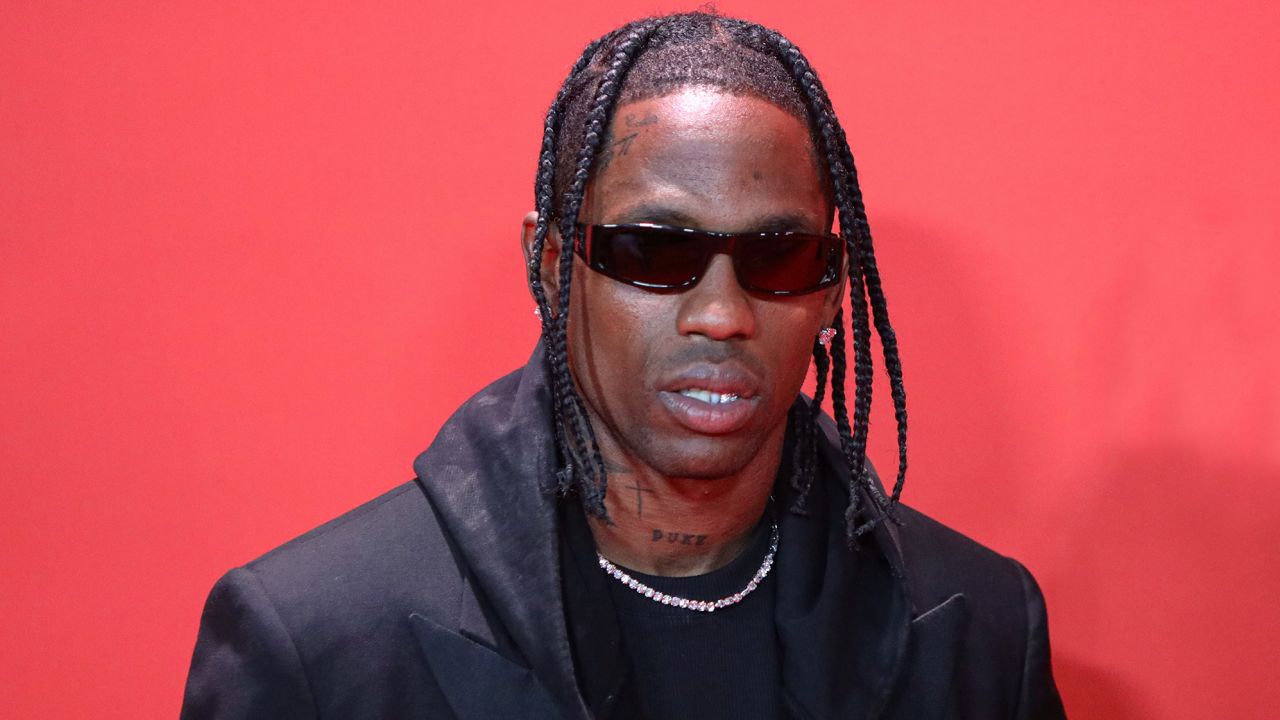Egypt’s powerful musicians syndicate argues US artist’s concert would ‘go against our traditions’.
A concert by the US rapper Travis Scott at the Giza pyramids has been banned by the Egyptian Musicians Syndicate after an online campaign against the hip-hop heavyweight.
International music stars often perform at the base of Egypt’s famed pyramids near the capital, Cairo, and the powerful musicians union rarely opposes such events. However, in recent years, it has spearheaded a fight against musical genres deemed improper in Egypt with rap a frequent target.
Egypt has also increasingly opposed what it views as a “rewriting” of its history, finding fault with African-American movements that claim cultural affiliation with the ancient Egyptian pharaohs.
The musicians syndicate, which oversees all matters relating to live or recorded music in the Arab world’s most populous nation, said in a statement on Tuesday that Scott’s concert would “go against our traditions”.
The union said it does not intervene in any musical performances so long as they “do not undermine the ancestral customs and traditions of the Egyptian people”.
After examining social media content and “the artist’s positions, the syndicate found images and documented information on the strange rituals he practices, which go against our traditions”, the statement said without specifying which rituals it was referring to.
Ahead of the move, social media users launched a campaign to cancel Scott’s concert, citing the American rapper’s Afrocentrism, which highlights the role of Black Africans in shaping humanity.
Supporters of the movement argue that the role of Black Africans in world history has been played down due to racist academic traditions inherited from Europe.
The cancellation of Scott’s Egypt concert follows some Egyptians’ angry reaction to the release of a Netflix docudrama about Cleopatra over its portrayal of the ancient Egyptian queen by a Black actress and what they view as cultural appropriation and a glossing over of the presence of non-Black Egyptians in ancient Egypt.
In February, Egypt cancelled a performance by American comedian Kevin Hart after a social media campaign circulated some of his past comments. Critics accused him of distorting history and robbing Arabs of their claim to the country’s ancient past as they accused him of saying the ancient kings of Egypt were Black.
The comments were not verified, and Hart did not comment on the controversy.
While organisers of Hart’s show said it was cancelled due to logistical issues, some Egyptian social media users celebrated the cancellation as a win for the boycott movement.
Source: AL JAZEERA AND NEWS AGENCIES






